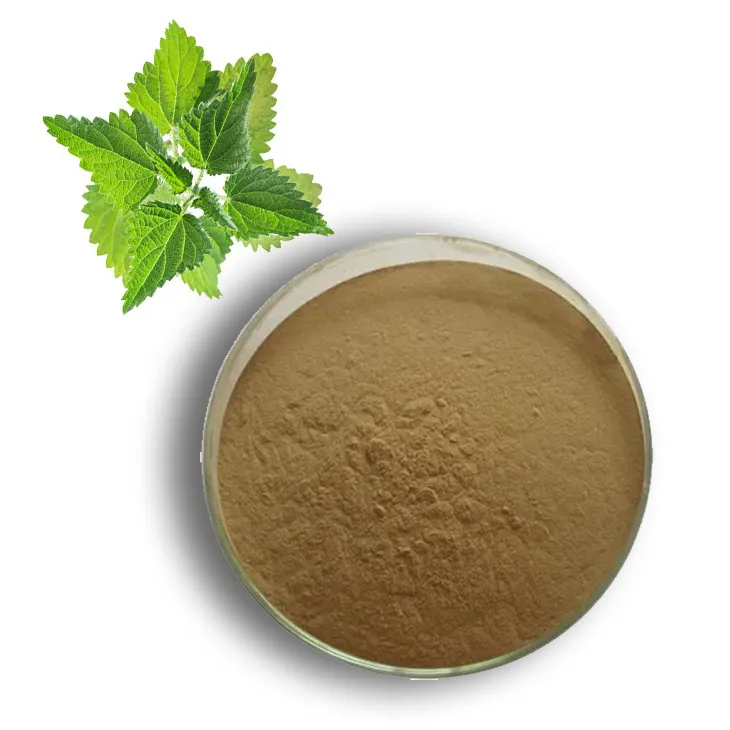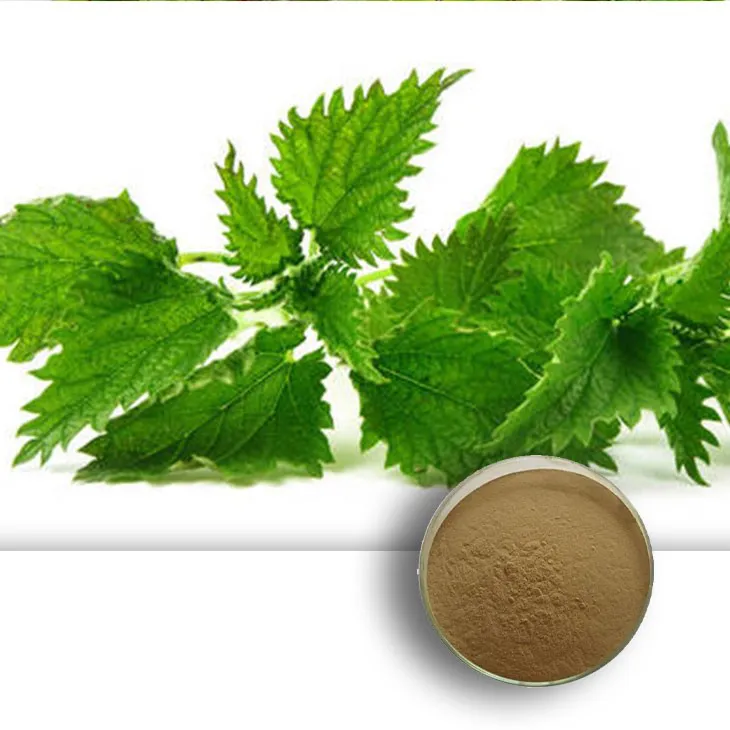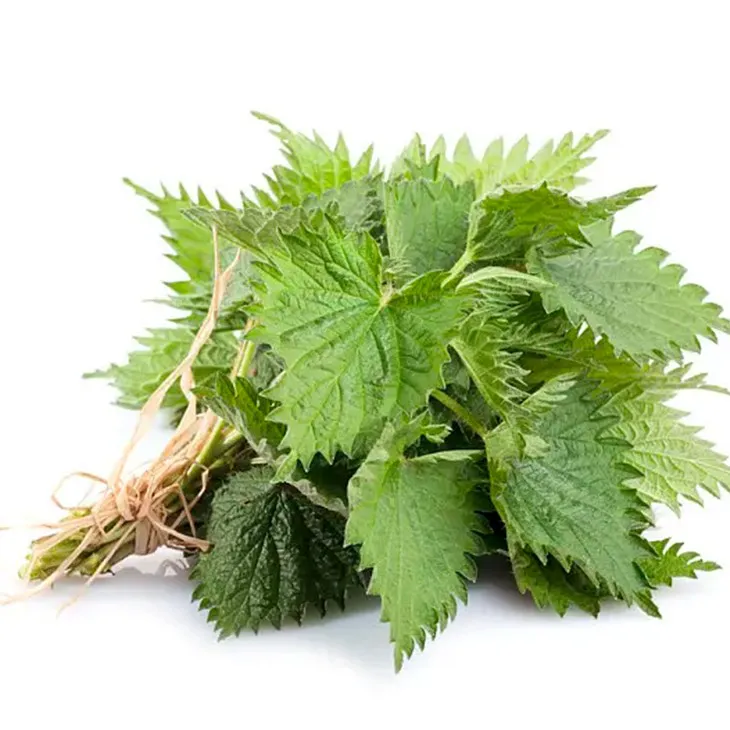- 0086-571-85302990
- sales@greenskybio.com
Nettle Leaf Extract: A Comprehensive Guide to Its Medicinal and Commercial Applications
2024-07-04

1. Introduction
Nettle leaf extract has emerged as a highly interesting and valuable substance in recent years. It is derived from the common nettle plant, scientifically known as Urtica dioica. This plant has a long history of use in traditional medicine across various cultures. The extract contains a rich blend of vitamins, minerals, and bioactive compounds, which are responsible for its diverse range of applications.

2. Medicinal Applications
2.1 Blood Sugar Regulation
One of the significant potential medicinal applications of Nettle leaf extract is in blood sugar regulation. Research has suggested that certain compounds present in the extract may interact with the body's mechanisms for glucose metabolism. For example, some studies have shown that it may enhance insulin sensitivity. Insulin is a crucial hormone that helps cells take up glucose from the bloodstream. By improving insulin sensitivity, Nettle leaf extract could potentially assist in maintaining stable blood sugar levels, which is especially important for individuals with diabetes or those at risk of developing the condition.
2.2 Urinary Tract Health
Nettle leaf extract has also been studied for its role in promoting urinary tract health. It contains components that may have anti - inflammatory and antimicrobial properties. In the urinary tract, inflammation can lead to various discomforts and health issues. The anti - inflammatory nature of the extract may help reduce swelling and irritation in the urinary tract tissues. Additionally, its antimicrobial properties could potentially combat harmful bacteria that may cause urinary tract infections. This makes it a promising natural remedy for urinary tract - related problems.
2.3 Anti - Inflammatory Effects
Beyond its specific effects on the urinary tract, nettle leaf extract exhibits broader anti - inflammatory effects throughout the body. Chronic inflammation is associated with numerous health problems, including heart disease, arthritis, and certain cancers. The extract contains bioactive compounds such as flavonoids and phenolic acids, which are known for their anti - inflammatory capabilities. These compounds work by inhibiting the production of inflammatory mediators in the body, such as cytokines and prostaglandins. By reducing inflammation, nettle leaf extract may contribute to overall health improvement and potentially help in the prevention and management of various inflammatory - related diseases.
2.4 Allergy Relief
Surprisingly, nettle leaf extract has also been investigated for its potential in providing allergy relief. Allergies occur when the immune system overreacts to harmless substances, such as pollen or certain foods. Some evidence suggests that nettle leaf extract may modulate the immune response in a way that reduces allergic reactions. It may act by suppressing the release of histamine, a chemical that is released during an allergic reaction and causes symptoms like itching, sneezing, and a runny nose. While more research is needed to fully understand its effectiveness in allergy treatment, it shows promise as a natural alternative for allergy sufferers.

3. Commercial Applications
3.1 Dietary Supplements
In the realm of dietary supplements, nettle leaf extract has gained popularity. It is often included in supplement formulations for its various health - promoting properties. Manufacturers may combine it with other vitamins, minerals, or herbal extracts to create products that target specific health concerns. For example, a supplement aimed at improving joint health might contain nettle leaf extract along with glucosamine and chondroitin. The extract can be presented in different forms, such as capsules, tablets, or liquid drops, making it convenient for consumers to incorporate into their daily health regimens.
3.2 Herbal Teas
Nettle leaf extract is also a common ingredient in herbal teas. These teas are known for their natural flavors and potential health benefits. Nettle tea has a unique taste that some people find refreshing. When consumed as a tea, the extract's beneficial compounds are released into the hot water, allowing for easy absorption by the body. Herbal tea blends containing nettle leaf extract may also include other herbs like mint or chamomile to enhance the flavor and potentially add additional health - promoting properties. This makes it a popular choice for those looking for a natural and soothing beverage option.
3.3 Cosmetics and Skincare
The use of nettle leaf extract in cosmetics and skincare products is on the rise. Its anti - inflammatory and antioxidant properties make it suitable for various skin - related applications. In skincare products, it can be used to soothe irritated skin, reduce redness, and potentially combat the signs of aging. For example, some facial creams and lotions may contain nettle leaf extract to help improve the overall appearance and health of the skin. Additionally, in haircare products, it may be used to promote a healthy scalp, as its anti - inflammatory properties can help reduce scalp inflammation, which is often associated with dandruff and hair loss.

4. Composition of Nettle Leaf Extract
4.1 Vitamins
Nettle leaf extract is rich in several important vitamins. It contains vitamin C, which is well - known for its antioxidant properties. Vitamin C helps protect cells from damage caused by free radicals and is also involved in collagen synthesis, which is important for skin health. Additionally, it contains vitamin K, which plays a role in blood clotting. Vitamin K deficiency can lead to abnormal bleeding, so the presence of this vitamin in the extract may contribute to overall health maintenance.
4.2 Minerals
The extract also contains various minerals that are essential for the body. Iron is one such mineral present in nettle leaf extract. Iron is crucial for the production of hemoglobin, the protein in red blood cells that carries oxygen throughout the body. For individuals with iron - deficiency anemia, nettle leaf extract may be a natural source of iron. It also contains calcium, which is important for bone health, and magnesium, which is involved in many enzymatic reactions in the body and helps regulate muscle and nerve function.
4.3 Bioactive Compounds
Aside from vitamins and minerals, nettle leaf extract is abundant in bioactive compounds. Flavonoids are a major group of these compounds. They are responsible for many of the extract's antioxidant, anti - inflammatory, and anti - allergenic properties. Phenolic acids are another type of bioactive compound present in the extract. These compounds also contribute to the overall health - promoting effects of nettle leaf extract, such as its potential role in blood sugar regulation and antimicrobial activity.
5. Preparation and Extraction Methods
5.1 Traditional Methods
Traditionally, nettle leaf extract was prepared using simple methods. One common approach was to make an infusion. This involved steeping the dried nettle leaves in hot water for a period of time, usually around 10 - 15 minutes. The resulting liquid was then used either as a tea or as a base for further extraction. Another traditional method was maceration, where the nettle leaves were soaked in a solvent, such as alcohol or vinegar, for an extended period, often several days to weeks. This allowed the beneficial compounds to be extracted into the solvent.
5.2 Modern Extraction Techniques
In modern times, more sophisticated extraction techniques are used to obtain nettle leaf extract. One such technique is supercritical fluid extraction. This method uses a supercritical fluid, typically carbon dioxide, as the solvent. Supercritical carbon dioxide has properties that make it an excellent solvent for extracting bioactive compounds from nettle leaves. It can be easily removed from the extract, leaving behind a pure and concentrated product. Another modern technique is ultrasonic - assisted extraction, which uses ultrasonic waves to enhance the extraction process. The ultrasonic waves create cavitation bubbles in the solvent, which helps break down the plant cell walls and release the beneficial compounds more efficiently.
6. Safety and Precautions
While nettle leaf extract has many potential benefits, it is important to be aware of certain safety and precautions. Nettle leaves contain small hairs that can cause skin irritation when the plant is handled directly. However, in the form of an extract, this is less of a concern. Still, some individuals may be allergic to nettle leaf extract, and allergic reactions can range from mild skin rashes to more severe respiratory symptoms. It is advisable for those with known allergies to other plants or substances to consult a healthcare provider before using products containing nettle leaf extract. Additionally, when using nettle leaf extract in high doses, there may be potential side effects, such as digestive discomfort. As with any supplement or herbal product, it is best to follow the recommended dosage guidelines.
7. Conclusion
In conclusion, nettle leaf extract is a remarkable substance with a wide range of medicinal and commercial applications. Its potential benefits in blood sugar regulation, urinary tract health, anti - inflammation, and allergy relief make it an interesting subject for further medical research. In the commercial world, its presence in dietary supplements, herbal teas, and cosmetics is growing. The rich composition of vitamins, minerals, and bioactive compounds in the extract is what gives it its diverse range of properties. However, as with any natural product, it is important to use it safely and with caution. With continued research, nettle leaf extract may hold even more potential in the future for improving human health and enhancing various consumer products.
FAQ:
What are the main medicinal applications of nettle leaf extract?
Nettle leaf extract has several potential medicinal applications. It may help in blood sugar regulation and has been investigated for its possible benefits in improving urinary tract health. Additionally, it contains various vitamins, minerals, and beneficial substances that could contribute to overall health.
How is nettle leaf extract used in commercial products?
In commercial products, nettle leaf extract is commonly incorporated into dietary supplements and herbal teas. These products are then sold in the market for consumers who are interested in the potential health benefits associated with nettle leaf extract.
What beneficial substances are found in nettle leaf extract?
Nettle leaf extract contains vitamins, minerals, and other substances that are considered beneficial. However, the specific substances can vary, but they are thought to be responsible for its wide - ranging applications in both medicine and commerce.
Is there scientific evidence for the blood sugar - regulating effect of nettle leaf extract?
There have been studies exploring the potential of nettle leaf extract in blood sugar regulation. However, more research is still needed to fully establish the extent of its effectiveness and the mechanisms involved.
Can nettle leaf extract be used safely?
When used appropriately, nettle leaf extract is generally considered safe for many people. However, like any supplement or herbal product, it may cause side effects in some individuals. It is always advisable to consult a healthcare provider before starting to use nettle leaf extract.
Related literature
- The Medicinal Properties of Nettle Leaf Extract"
- "Nettle Leaf Extract in Dietary Supplements: Composition and Benefits"
- "Commercial Applications of Nettle - Based Products"
- ▶ Hesperidin
- ▶ Citrus Bioflavonoids
- ▶ Plant Extract
- ▶ lycopene
- ▶ Diosmin
- ▶ Grape seed extract
- ▶ Sea buckthorn Juice Powder
- ▶ Fruit Juice Powder
- ▶ Hops Extract
- ▶ Artichoke Extract
- ▶ Mushroom extract
- ▶ Astaxanthin
- ▶ Green Tea Extract
- ▶ Curcumin
- ▶ Horse Chestnut Extract
- ▶ Other Product
- ▶ Boswellia Serrata Extract
- ▶ Resveratrol
- ▶ Marigold Extract
- ▶ Grape Leaf Extract
- ▶ New Product
- ▶ Aminolevulinic acid
- ▶ Cranberry Extract
- ▶ Red Yeast Rice
- ▶ Red Wine Extract
-
Peppermint Oil
2024-07-04
-
Chia Seed Powder
2024-07-04
-
Medicinal Marshmallow Extract
2024-07-04
-
Acerola Juice Powder
2024-07-04
-
Curcumin Extract
2024-07-04
-
Coconut Water Powder
2024-07-04
-
Yellow Pine Extract
2024-07-04
-
Boswellia Serrata Extract
2024-07-04
-
Lycopene
2024-07-04
-
Moringa powder
2024-07-04





















